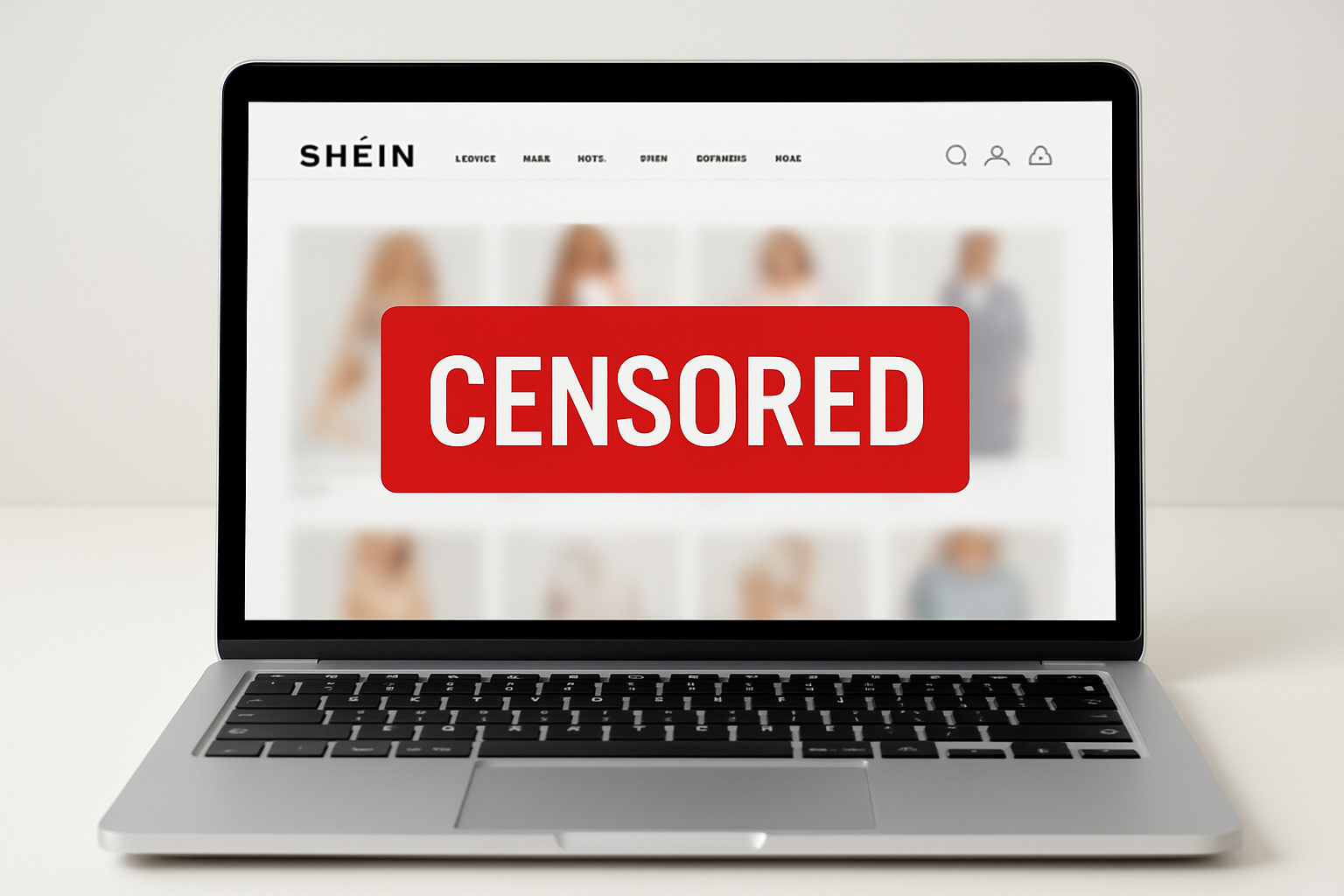
France’s consumer-protection authority has placed Chinese fast-fashion giant SHEIN under intense scrutiny after investigators discovered online listings for sex dolls described or designed with a child-like appearance. The findings have ignited a storm of criticism, placing SHEIN’s ethics and marketplace controls under the global spotlight just as the company prepares to open its first permanent physical store in Paris.
The investigation, led by France’s DGCCRF (Directorate-General for Competition, Consumer Affairs and Fraud Control), revealed that SHEIN’s marketplace included third-party listings resembling or referencing minors. Authorities warned that such content could fall under the scope of laws prohibiting the distribution of materials involving the sexualization of children.
In response, SHEIN has globally suspended its “adult products” category and permanently banned the sale of sex-doll-type products across all markets. The brand issued a statement asserting its “zero-tolerance policy toward illegal or offensive listings” and emphasized that the offending items were uploaded by independent sellers, not directly by the company.
However, the move did little to quell public outrage. French prosecutors have since opened a formal investigation into SHEIN, alongside other major online retailers such as AliExpress and Temu, to determine whether their platforms facilitated access to prohibited content.
The controversy could not have come at a more sensitive moment. SHEIN — a company valued at over $60 billion and synonymous with fast-fashion’s digital dominance — has been seeking to reposition itself as a global lifestyle brand with real-world retail presence. Its upcoming Paris store, housed within the iconic BHV Marais department store, was meant to symbolize its legitimacy within the European fashion landscape.
Instead, it has become a lightning rod for protests. Critics accuse the company of “profiting from opacity” — a reference to long-standing concerns over its supply-chain transparency, labor conditions, and environmental footprint. The new scandal has only deepened skepticism over whether SHEIN can align rapid-growth e-commerce with ethical accountability.
Fashion analysts say the incident underscores a systemic vulnerability within platform-based retail models, where vast volumes of third-party products are uploaded daily with limited oversight.
“Marketplace scale is both SHEIN’s strength and its Achilles heel,” notes Dr. Amélie Roche, a retail ethics researcher at the Paris Institute of Fashion Studies. “When you move millions of SKUs at algorithmic speed, your risk exposure expands faster than your compliance capacity.”
France’s Ministry of Economy has warned that if SHEIN were found to have knowingly allowed such listings, the government could suspend its access to the French market entirely. That threat, rare for a retail platform of SHEIN’s size, signals the European Union’s growing appetite to hold digital commerce players accountable for content moderation and consumer protection.
The investigation’s ripple effects are expected to reach beyond France. Policymakers in Germany, the U.K., and the European Commission are reportedly monitoring developments closely, considering whether similar probes are warranted under new Digital Services Act (DSA) compliance standards.
Meanwhile, investors and consumers alike are re-evaluating the risks tied to SHEIN’s highly anticipated IPO, rumored to be planned for late 2025 or early 2026. For a brand that relies heavily on influencer partnerships and Gen-Z loyalty, reputational damage could prove more costly than regulatory fines.
This controversy extends beyond one retailer. It reflects a wider cultural and regulatory shift: fashion’s global expansion can no longer rely solely on speed and affordability. Modern consumers — especially in Western markets — increasingly demand traceability, responsibility, and ethical coherence from the brands they support.
As the lines blur between technology platform and fashion label, SHEIN’s reckoning could become a precedent for the industry. Transparency, once treated as a marketing slogan, is rapidly becoming a legal and moral requirement.
For now, SHEIN’s Paris debut hangs in the balance — a reminder that in today’s fashion world, image is no longer defined by what’s on the runway, but by what’s behind the algorithm.
Lorem ipsum dolor sit amet, consectetur adipiscing elit. Suspendisse varius enim in eros elementum tristique. Duis cursus, mi quis viverra ornare, eros dolor interdum nulla, ut commodo diam libero vitae erat. Aenean faucibus nibh et justo cursus id rutrum lorem imperdiet. Nunc ut sem vitae risus tristique posuere.